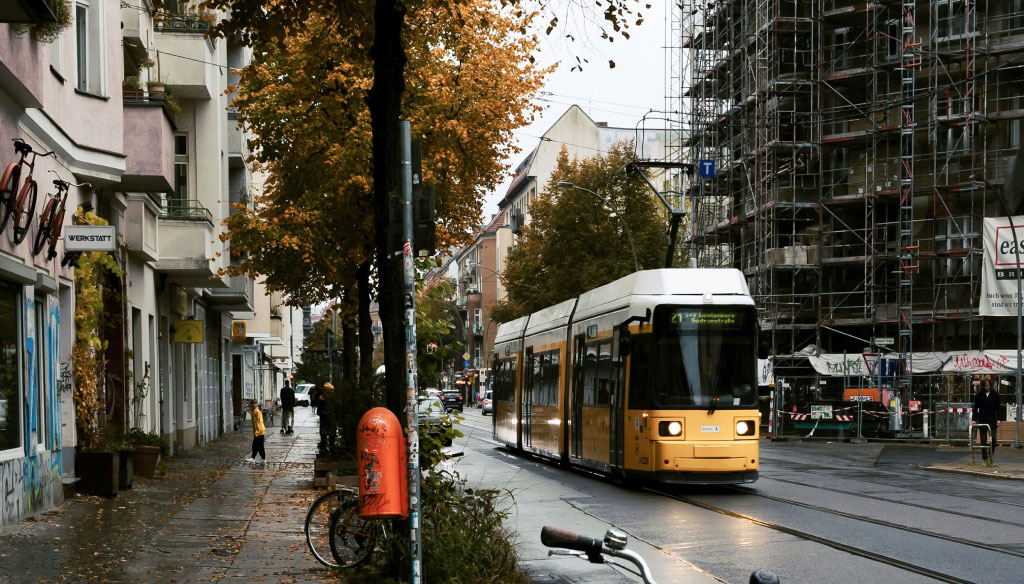
In May, during his presentation at the Wall Street Journal’s Future of Everything Festival, WeWork’s CEO announced something rather peculiar to a remote audience.
"It's pretty obvious that those who are overly engaged with the company want to go to the office two-thirds of the time at least," said Sandeep Mathrani. "Those who are least engaged are very comfortable working from home."
The comment received swift reaction on social media, from both CEOs and employees alike. Many people also called out Mathrani’s vested interest in flex space. The flexible office space that flex players offer for many companies could be more attractive than signing long-term traditional leases post-pandemic.
Three days later, however, Mathrani clarified his comments in a post on LinkedIn in response to the backlash. "It was not my intent to cast a negative light on those who are working from home and I apologize if my comments were not clear," he concluded.
The whole debacle came at a time when many workers themselves have reported feeling more productive at home, a recent survey from Upwork shows. More importantly, however, Mathrani’s comments raised questions about what it means to be “engaged” in the first place—especially during COVID-19. Nearly half of German firms, including many startups in Berlin and Munich, are allowing employees to work from home following the coronavirus crisis. One thing is clear: work-from-home is here to stay.
At the same time, though, employees have been feeling an increasing amount of work-from-home fatigue—and it’s not only just now-studied zoom fatigue. Loss of motivation, unhealthy working habits, and overworking have become par for the course for many employees in Germany, and around the world. At a time when fatigue has become a feeling many officer workers are intimately familiar with, what can companies do to keep employee engagement high?
We’ve now been working in our continually evolving COVID-19 world for nearly one year. Here are a few ways to keep dispersed team members informed, motivated, and engaged during these times:
1. Communicate, communicate, and communicate.
We’ve heard it so many times, but the C-word continues to be critical across all company levels. However, it’s important to keep in mind that what may have worked in the early days of COVID-19 likely may not be working now. It’s also about how you communicate within your company. Keeping an open mind and proposing new forms of communication are just as important as communicating at all. For some teams, that may mean a weekly coffee catch-up every Thursday. For others, it could be breakout rooms on Zoom that devote time to answering any questions an employee might have. Across the board, however, management needs clear streams of information that are based on empathy and understanding. Even if they may not have every answer to every question, providing updates (e.g., “We don’t have this information today, but we do expect to have it ready by X date”) is better than saying nothing at all.
2. Provide employees the opportunity to go to the office when they want to.
The term “work-from-home” shouldn’t exclusively mean working from home. Even if many employees wish to work from home the majority of the time, many still want hybrid solutions, in which they have the option to go to the office two to three times a week. Employees may enjoy the benefits of working flexibly from home, but one study found that at least 94% of people admit to missing at least one thing about the office. Having schedules for team members to book when to come into the office, weekly check-ins to see if they’d like to come in, and constantly keeping a running tab of who wants what are all effective ways to check in on your teams.
3. Invest in learning and development programs.
COVID-19 is a critical period for companies to show that they value their employees. It’s not only essential but productive for everyone involved. Learning and development programs are a great way to keep workers motivated, a way to invest in their future, and support their personal and professional growth. Offering live and facilitated training, the opportunity to learn German (or any other language), or extracurricular activities that make employees happy can increase motivation and connection in manifold ways.
4. Encourage putting the computer away.
Remember that during COVID-19, overworking has become the norm. If you’re working at home, it’s hard to simply just shut off. During the first phase of the pandemic, many companies only paid lip service to burnout prevention without ever instituting any formal policy. Even worse, if managers themselves work long hours and create a culture of overwork, even a company’s ostensible policies may not lead to reasonable working hours. Leadership needs to model work-life balance. Actions speak louder than words. And clear boundaries are a must: signing off after work, letting people have control over their workday (avoiding rigid work schedules), reducing or removing requirements for videoconferences, and offering paid volunteering schemes are all useful techniques to avoid burnout.
5. Surprise your employees from time to time.
While working from home certainly has its benefits, it can also be exhausting, isolating, and even burnout-prone. Several companies have started to take these feelings to heart, addressing them by providing support to their employees in a fun and creative way. A few of them have started sending care packages to their employees, often with sweatshirts, seasonal gifts, and even a bottle of beer on a Friday. Another low-cost, high-impact way to surprise your employees is by providing “surprise” days off for employees to focus on their mental health. In any case, keep it fun!
We’re helping the Berlin office ecosystem before, during, and after COVID times. If you’re looking for an office space or need advice on finding the right space, talk to us.






